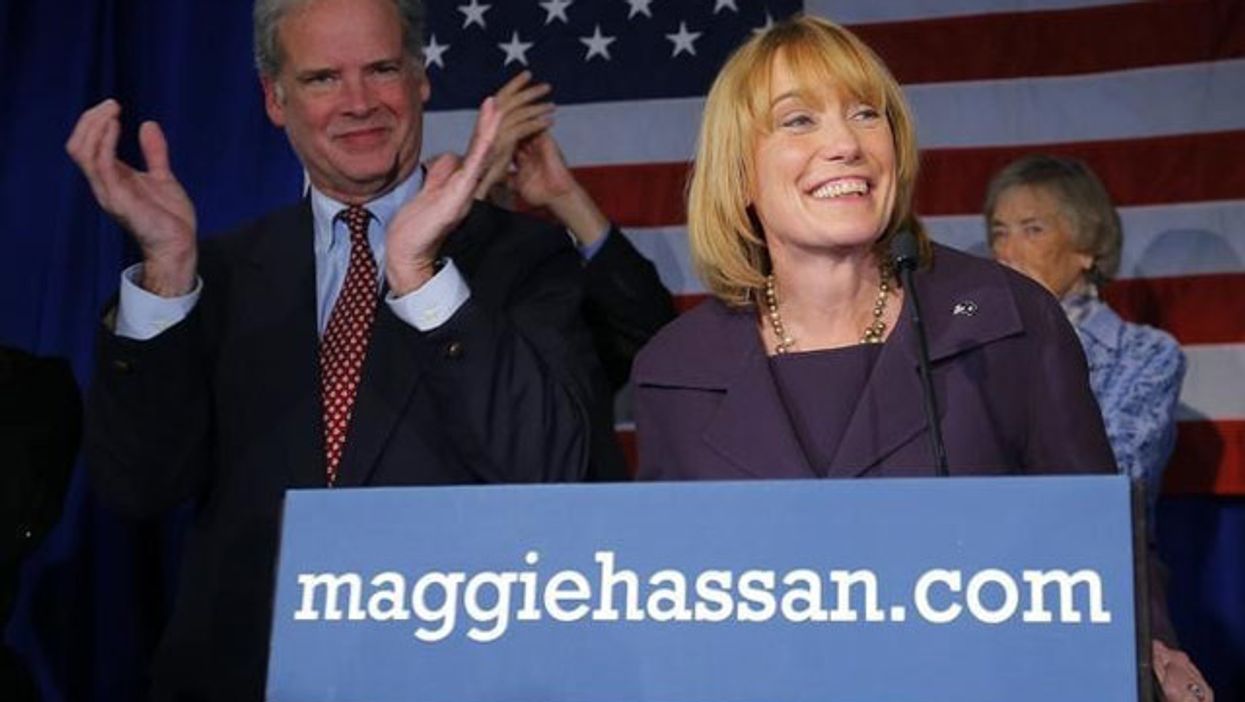By Zachary Mider, Bloomberg News (TNS)
NEW YORK — Republicans outnumber Democrats two to one in rural Steuben County, N.Y., the home of the glassmaker-turned-tech-company Corning Inc. The company’s leaders have been enmeshed in Republican politics ever since they backed James Garfield for president in 1880. Two different sons of the founding Houghton family have gone to Congress on the GOP ticket after running the company.
But in July, the current CEO, a registered Republican named Wendell Weeks, gathered some 150 friends and employees in a hotel ballroom in the tiny company town of Corning to welcome the firm’s clear favorite for president of the United States: Hillary Clinton.
Clinton’s relationship with Corning, a major employer in upstate New York, dates to when she served as the state’s junior U.S. senator, but they seem only to have strengthened since she left that role almost seven years ago. Over 100 Corning employees have given her campaign a combined $196,700 so far this year, her second-biggest source of contributions by any employer, and ahead of the Wall Street investment banks and Washington lobbying firms that usually give the most in presidential contests. Only three employees gave to other candidates.
Her ability to sustain her ties to Corning points to one of the strengths of her campaign for the presidency: a Rolodex built over decades in public life and painstakingly maintained, offering her a formidable list of allies and more campaign contributions — $77 million — than anyone in either party in the 2016 race. (Jeb Bush is ahead only if independent super PAC funds are included.)
It also points to a potential weakness: She’s been criticized for blurring lines between her official duties, fundraising and personal finances, such as with the corporations that have bankrolled her family foundation and supported her and her husband’s lucrative speaking business.
Corning has done both, but James Flaws, the chief financial officer and a co-host of the July fundraiser, said the company doesn’t stand to gain more than anyone else if she becomes president. “We’re voting for someone who we think is an effective leader for the country,” he said.
The Clinton campaign didn’t respond to a request for comment.
In interviews, some of Clinton’s advocates at the company and in the region said they didn’t expect special attention of the kind they enjoyed when she was in the Senate, nor could they point to any of her campaign pledges that would particularly benefit them. They said they just got to know her when she was their senator, and thought she did a good job. They recalled times when she remembered a name, found money to fix a road, or cut short a nap on the campaign trail to meet with a local official.
“She’s been a friend to us in Corning, and you support your friends,” said Thomas Blumer, 65, a retired supply-chain executive at the company and a lifelong Republican who contributed $2,000.
Amory Houghton Jr., 89, is a scion of the company’s founding family who served as company chairman through the 1980s, and later as a Republican congressman. After his wife died in 2012, he recalls getting a call from Clinton, who was serving as secretary of state at the time.
“She was in Uzbekistan or something like that. She called up and said how sorry she was,” he said. “You could say that was political. I don’t think it was. I thought it was wonderful. Those human touches really made a tremendous difference here.”
One sunny spring day in 2003, Clinton stood outside Corning’s headquarters in a bright orange pants suit, gazing at the back end of an idling school bus. She was there for a demonstration of a ceramic filter the company had invented to reduce diesel pollution. An official held a white cloth over the tailpipe, then handed it, still immaculate, to the senator. She sniffed it. “It’s like a magic trick,” she remarked to a local newspaper, the Star-Gazette. Not long after, Clinton helped direct hundreds of millions of dollars in federal funding to equip buses and trucks across the country with Corning’s technology.
At the time, the 164-year-old company’s shares were near their lowest point in decades, and it needed the help. A firm that crafted some of Thomas Edison’s first light bulbs had, by the end of the 1990s, shifted focused from glassmaking to fiber optics. When the telecommunications boom went bust just after Clinton joined the Senate, Corning nearly went out of business. It recovered by boosting sales of a broader group of products, including the emissions filters, liquid-crystal displays for TV’s and computer screens, and the high-tech glass in smartphones. It now has about 35,000 employees around the world, including about 5,000 in the Corning area, nearly half the population of the town.
Sen. Clinton helped in other ways, such as intervening in a trade dispute with China over fiber-optics tariffs, and upgrading a key highway. The company reciprocated, directing thousands to her Senate re-election campaign from top executives and through its political action committee.
The support continued after Clinton left the Senate for the State Department in 2009. When she sought to raise $60 million in corporate funding to pay for an American pavilion at a world expo in China the following year, Corning kicked in $500,000. Corning also cut a check of at least $100,000 to her family’s foundation, and paid her $225,000 last year to give a speech to about 200 top executives.
Corning spokesman Daniel Collins said the company’s contribution to the Clinton’s foundation was to support an initiative to promote the advancement of women into senior corporate positions. As for the expo in China, he noted that the company employs more than 5,000 people in the country and an additional 10,000 in the Asia-Pacific region.
Clinton continued to be helpful to the company while at the State Department, according to Blumer, the former supply-chain executive. “If we needed to know who to deal with somewhere around the world, she could help with names,” he said.
Flaws, the CFO, said he scrawled personalized notes to so many hundreds of his friends and colleagues, asking them to come to the $1,000-a-seat July fundraiser, that his hand got sore. As he remarked to the Star-Gazette in 2003, “The Clinton-Corning partnership is very rewarding for both of us.”
Photo: The company that makes intricate and beautiful glassware, Corning, has donated plenty of money to Hillary Clinton’s campaign. Brian Holland/Flickr





